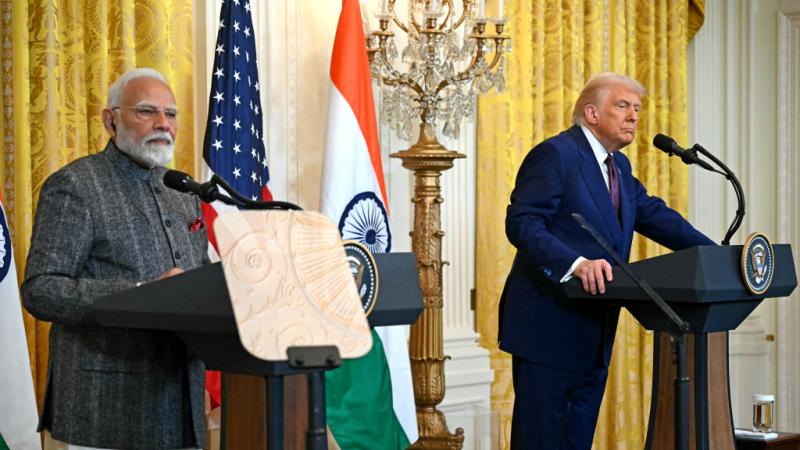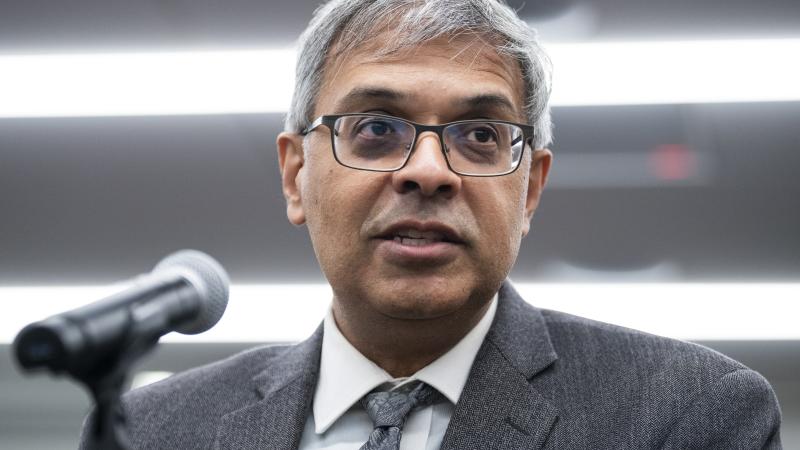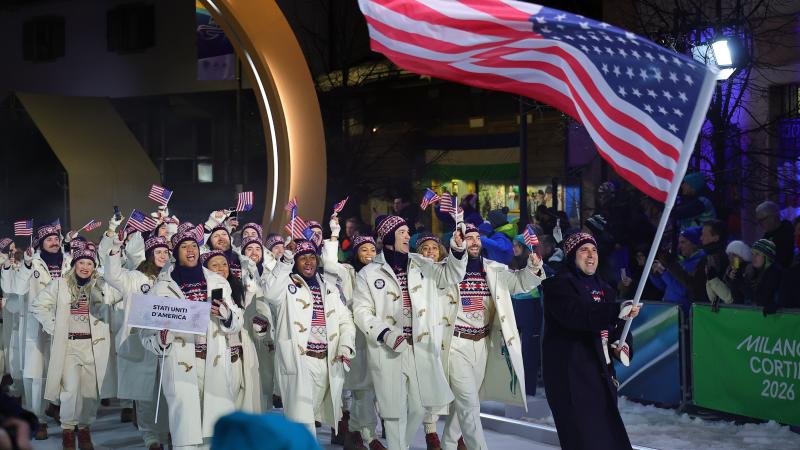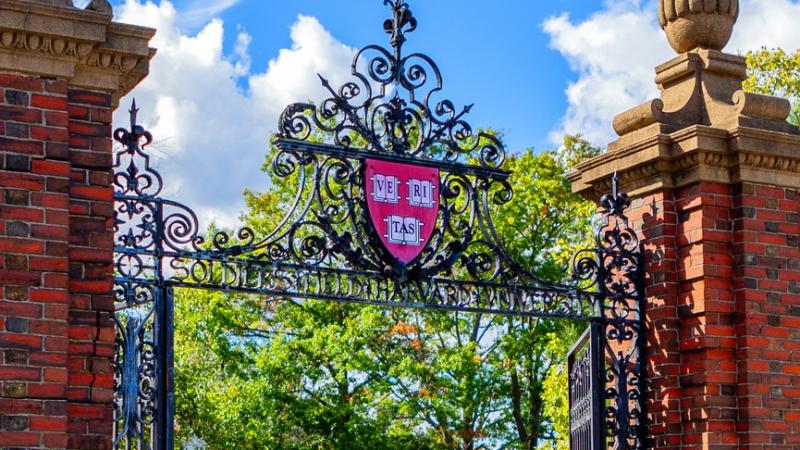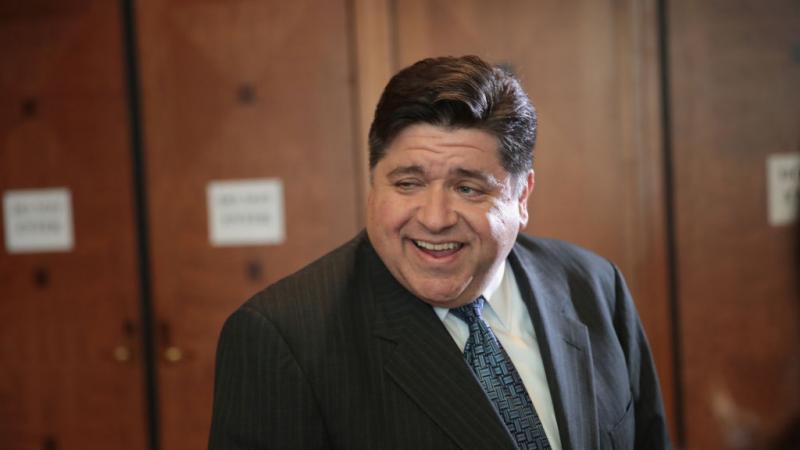Trump's idea to accept more Chinese students appears to contradict earlier admin policy
Earlier, administration officials had planned to revoke Chinese student visas over security concerns following repeated warnings from lawmakers, intelligence agencies about how China exploits the university programs.
In an apparent departure from early administration policy goals, President Donald Trump floated the idea of significantly expanding the number of Chinese students permitted to study in the United States, raising confusion from within his own party.
Just months ago, administration officials planned to revoke Chinese student visas over security concerns following repeated warnings from intelligence agencies about how China exploits its citizens in the U.S. to steal valuable trade secrets and research.
Years of scientific, industrial espionage
In recent years, policymakers have also raised concerns about Chinese nationals studying or working in the United States over the national security risks—including the economic espionage or intellectual property theft that have become hallmarks of Chinese national strategy.
Since President Trump’s first term, Chinese students have been accused of or charged with spying on sensitive U.S. military installations, illegally registering to vote in a U.S. election, and reporting back to the Chinese Communist Party about U.S. technological research.
One Chinese national, who came to the San Francisco area on a student visa in 2011, conducted a multi-year campaign to develop ties with local and federal government officials, including Rep. Eric Swalwell, D., Calif., on behalf of the Chinese Communist Party.
Lawmakers and intelligence officials in recent years have identified the Chinese Communist Party as the primary threat to America, warning of growing economic espionage, trade secret theft, research appropriation, and transnational repression.
In a report released earlier this year, the House Committee on Homeland Security cataloged more than 60 cases of espionage and acts of transnational repression connected to the Chinese Communist Party across 20 states under the Biden administration alone. These examples were only part of the 224 cases between 2000 and 2023, according to the committee.
Many of the examples cited by the committee include the transfer of sensitive military information and the stealing of U.S. trade secrets that could benefit the Chinese government or companies. However, Chinese students have also been implicated in the Chinese efforts, Just the News has previously reported.
“China continues to utilize ‘non-traditional’ collectors to conduct a plurality of their nefarious efforts here in the U.S. due to their successful ability to hide in plain sight,” former Director of the National Counterintelligence and Security Center Bill Evanina warned Congress in his 2023 testimony.
“The non-traditional collectors, serving as engineers, businesspersons, academics, and students are shrouded in legitimate work and research, and oftentimes become unwitting tools for the CCP and its intelligence apparatus,” he testified.
In 2017, China passed a broad new national security law that mandated that its citizens participate in intelligence work if ordered to do so by the country’s intelligence agencies.
“All organizations and citizens shall support, assist, and cooperate with national intelligence efforts in accordance with law, and shall protect national intelligence work secrets they are aware of,” Article 7 of the law reads, according to a translation by the China Law Translate website affiliated with the Paul Tsai China Center at Yale University.
Last October, the Justice Department charged five University of Michigan students from China after the National Guard discovered them in proximity to a base hosting exercises. At the time, they were let go and claimed to be members of the media. The DOJ later found the Chinese nationals had planned the trip 200 miles from where they studied at the university to take photos of military vehicles at Camp Grayling. They were charged last month over their alleged attempts to cover up their real reason for traveling so close to the military base. Warrants were issued for their arrest, though the individuals’ whereabouts are unknown, Just the News previously reported.
In a similar case in 2020, two students were arrested in Key West, Florida, after driving on to the Sigsbee Annex Naval Air Station and photographing the property, including military structures.
Earlier this year, a Chinese student, also from the University of Michigan, was charged by the Justice Department for illegally voting in the most recent U.S. presidential election. In October, while attending the university as a foreign national student, Haoxiang Gao turned himself in after allegedly being registered to vote and casting a ballot in the general election in Michigan. Gao was charged with two felonies: false swearing to register to vote and trying to vote as an unqualified elector, Just the News previously reported. He later fled to China using a different passport than the one he surrendered to law enforcement.
Trump talks about allowing more students in from China
On Monday, President Trump floated welcoming 600,000 Chinese students to the United States amid ongoing trade talks with Beijing.
“I’d like to meet him this year. President Xi would like me to come to China,” the president said. “We’re taking a lot of money in from China because of the tariffs and different things.… It’s a much better relationship economically than it was before with [former President Joe] Biden. I mean, they just took him to the cleaners.
“We’re going to allow, it’s very important, 600,000 students,” Trump continued. “We’re going to get along with China. But it’s a different relationship that we have now with China.”
That number would be a significant increase in the number of Chinese students studying in American schools, 300,000 more than currently in the country. The most recent data show that there was a total of 277,398 Chinese students in 2024. It is also far greater than the 331,602 students from India, which sent the largest number of students that year. At its peak, the number of Chinese students studying in the U.S. reached only 372,532 in 2019, before the COVID-19 pandemic.
An increase in the number of Chinese students of that magnitude appears to directly contradict the administration’s earlier policy, which identified such students as potential vectors of Communist Party influence and possible national security threats.
The White House did not respond to questions seeking clarification on the president’s remarks.
Part of trade negotiations?
In June, President Trump issued a proclamation revoking Harvard University’s ability to enroll foreign students after the premier school failed to provide sufficient data on such students accused of misconduct. That proclamation specifically identified China, and its students, as a prime concern. The decision was later blocked by a federal judge and the legal fight remains ongoing.
In the prior month, Secretary of State Marco Rubio said that the State Department would move “aggressively” to revoke visas for Chinese students “with connections to the Chinese Communist Party or studying in critical fields.” Rubio added that the government will also "revise visa criteria to enhance scrutiny of all future visa applications from the People's Republic of China and Hong Kong” in a statement published by the agency.
Trump’s latest comments, which he continues to defend, indicate that the visa issue has become a key part of trade negotiations with China and the national security concerns no longer stand front and center.
"I like that their students come here, I like that other countries' students come here. And you know what would happen if they didn't, our system would go to hell immediately. And it wouldn't be the top colleges, it would be colleges that struggle on the bottom,” Trump told reporters on Tuesday at a meeting of the cabinet.
He added, “I told this to President Xi, that we're honored to have their students here," before saying “we check and we're careful and we see who's there."
Dissent among the MAGA faithful
The president’s comments faced almost immediate backlash from some of his closest conservative allies and supporters.
"We should not let in 600,000 CHINESE students to attend American colleges and universities that may be loyal to the CCP,” Rep. Marjorie Taylor Greene, R., Ga., a staunch supporter of the president, posted to X. “Why are we allowing 600,000 students from China to replace our American student's opportunities? We should never allow that."
"Granting 600,000 student visas to Chinese nationals threatens to put foreign students ahead of U.S. graduates," Joe Chatham, director of government relations at the Federation for American Immigration Reform, told Fox News Digital.
"The focus now must be on reforms to limit access to sectors crucial to our economy and national security that have repeatedly been the target of corporate espionage and intellectual property theft—not expanding access to hostile countries. Educating foreign nationals should never be put before the interests of U.S. citizens and ensuring that our nation thrives," he said.
The Facts Inside Our Reporter's Notebook
Links
- conducted a multi-year campaign
- floated welcoming 600,000 Chinese students
- most recent data show
- reached only 372,532 in 2019
- issued a proclamation
- Marco Rubio said that the State Department would move âaggressivelyâ
- a statement published by the agency
- told reporters on Tuesday
- cataloged more than 60 cases
- have also been implicated
- warned Congress in his 2023 testimony
- a translation by the China Law Translate
- affiliated with the Paul Tsai China Center
- charged five University of Michigan students
- previously reported
- two students were arrested in Key West
- registered to vote
- charged
- previously reported

